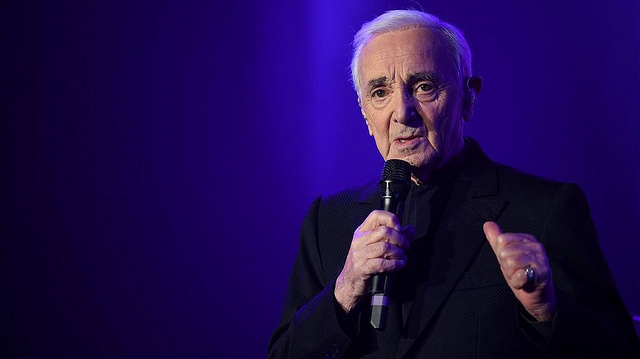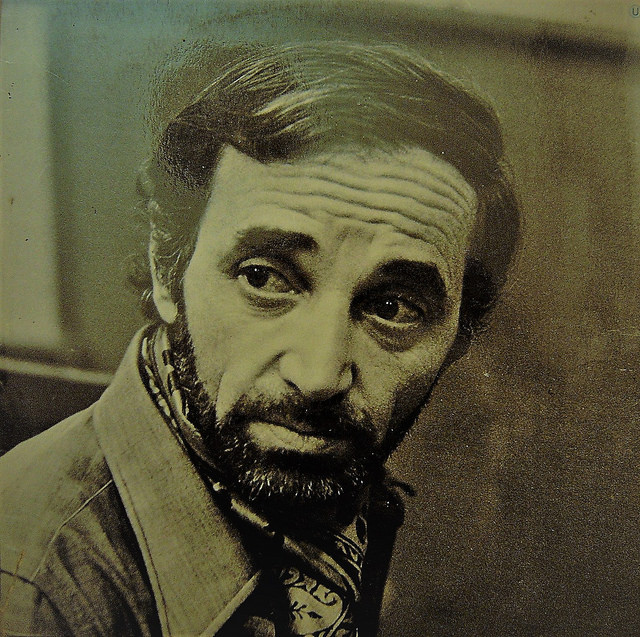Say Goodbye to One of France's Greatest Singers

“For a long time, millions of men and women will suddenly hear the distant melody and true words of Charles Aznavour in their memories. Because in France, poets never die.” This is what Emmanuel Macron tweeted to all of France the day of the national tribute dedicated to Charles Aznavour. In his 70 year career, Aznavour has touched many generations and his music will never cease to please.
The road to success
Today, everyone loves hearing Aznavour's ballads as they take people away to another planet or time. This has not always been the case. In the beginning, when writing his songs, Charles Aznavour faced many criticisms. His songs were seen as obscene, especially at the start of his career, in 1955. Some of his songs which mentioned sex and adultery were not appropriate during that epoch.
Image credit: Gilbert-Noël Sfeir Mont-Liban/FlickrCharles Aznavour's parents were Armenian and had to flee from their country to France due to the Turkish massacres in 1915. Charles Aznavour was born in Paris, where his parents lived, in 1924. His father owned a bar but was also a part-time singer and his mother was a seamstress and a part-time actress. Both strongly encouraged their son to dance, sing, act and play instruments. This helped kickstart Aznavour's success as he started acting in films and singing at cabarets and nightclubs with Pierre Roche, a singer-composer. Quickly, Charles Aznavour started writing songs for celebrities such as Edith Piaf or Juliette Gréco. In the 1950s, he built his career with songs that, as Aznavour said himself, were "something new, more truthful". They were showing the realities of everyday life at the time and the storytelling of his experiences. As he says, "Une chanson doit être pensée avant d'être écrite" or, a song has to be thought about before writing.
Charles Aznavour still struggled to get himself a place in the celebrity sector. This was not just due to his songs, but also because of his physical look, "My ugly face, my lack of height, my uncommercial songs. I was told I would never be a success," said Aznavour. However, over time, Aznavour wrote more and more songs that people could relate to and enjoy. This helped him to quickly gain a big audience.
Throughout the years, Aznavour kept close ties with his home country. He campaigned for the massacre in Turkey to be seen as a genocide and was named as an ambassador for humanitarian action in 1993. He also wrote a song called "Pour Toi Armenie" for the 1988 earthquake that hit Armenia.
The French Frank Sinatra
After having acted in multiple movies and performing in broadway plays, Charles Aznavour managed to get his international success. Often, he was compared to the great singer, Frank Sinatra. In his eight-decade career, he has written more than 1000 songs and has sold more than 180 million records and continued to sing duos with other celebrities such as Elton John, Carole King, and others.
France has lost one of the greatest men it had in the singing industry. His death has marked the end of a great epoch and we will forever remember his daring and provoking music and the honesty that he brought to his fans. His songs have been accompanying three generations in their everyday lives and will continue to do so. As France's President said, his songs were and still are a "balm, a remedy, a comfort" to all of us listening to him.
Here are a few of his most famous and loved songs:
"La Bohème" came out to the public in 1965 and talks about the nostalgia the singer feels about his younger life and experiences in Paris as a new singer, as well as the changes throughout the years. It is the most popular song and it is very moving and touching. It makes people feel like they can go back in time.
"Emmenez-Moi" came out in 1967 in the album Entre Deux Rêves. In the song, Aznavour talks about traveling and escaping the industrial world to a better world. This song makes us want to dance and go to great places.
"For me, Formidable" was made in 1963 and is mainly in French with a bit of English as well, and is a light-hearted song talking about love. It was mainly a way to play with both English and French language to gain an international audience.








